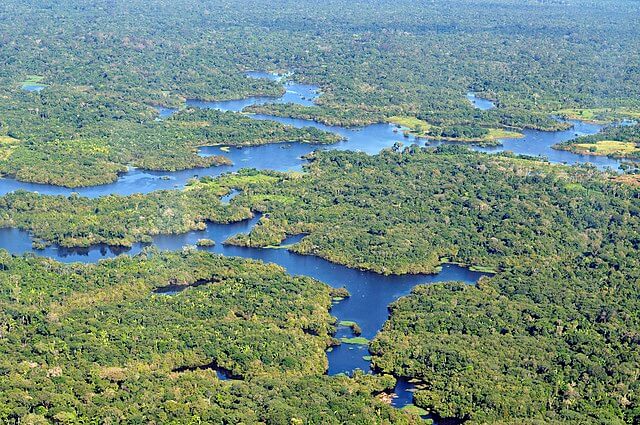
The UK’s advertising watchdog, the Advertising Standards Authority (ASA), is set to ban advertisements that claim products are carbon neutral through offsets unless companies can substantiate their claims.
This move comes as concerns grow about companies misleading consumers regarding the environmental impact of their products. The ASA’s crackdown on greenwashing will involve stricter enforcement of terms like “carbon neutral,” “net zero,” and “nature positive” following a six-month review.
Under the new plans, the ASA will take action against companies that suggest consumers can purchase their products without exacerbating global heating or nature loss through offsets unless they can demonstrate the effectiveness of these offsets. Lufthansa and Etihad have recently faced enforcement actions by the ASA regarding green claims. However, companies will still be allowed to discuss their sustainability efforts.
The decision to tighten regulations on carbon neutral claims comes after an investigation earlier this year revealed that many rainforest offsets certified by Verra, a leading carbon standard operator, had little impact despite being widely used for environmental claims. The investigation also found evidence of forced evictions at a flagship project in Peru utilised by major companies such as Disney and Apple. While Verra disputed these findings, the analysis of scientific research on rainforest projects indicated that most had either failed to prevent forest loss or had significantly overstated their impact as approved by Verra’s system. Calyx Global, a carbon credit rating agency, released a report last month echoing concerns about the environmental integrity of these credits.
Scientists have called for urgent reforms in the unregulated offset system to finance climate mitigation and forest conservation. Verra is in the process of launching a new methodology for certifying rainforest carbon credits in response to credibility concerns. Companies are increasingly encouraged to acknowledge their climate contributions when purchasing carbon credits rather than claiming to have offset their emissions.
Gucci, Italy’s most valuable luxury brand, has removed its claim of being “entirely carbon neutral” from its website. The company had announced this status in 2019, partly relying on Verra’s rainforest offsets. Gucci stated that it is no longer working with South Pole, the Swiss carbon credit consultancy it partnered with for this commitment. South Pole defended itself, asserting that climate neutrality claims had sometimes been misunderstood or misused by companies. It expressed its opposition to greenwashing and is consulting its clients on defining Paris-aligned corporate claims.
“At Gucci, we are regularly reviewing our environmental claims in order to uphold the best science-based standards, as well as align with the global regulatory framework,” a spokesperson said. “Since setting our carbon neutral goal in 2018, our strategy has evolved progressively and now encompasses a nature-positive approach, including protecting and restoring biodiversity, investing in regenerative agriculture and supporting local communities,” it added.
Other companies have also shifted away from offsetting. EasyJet announced in September that it would no longer offset carbon emissions from its planes, having previously used Verra’s rainforest offsets to claim carbon neutrality for its flights. JetBlue, a US airline, has also moved away from offsetting. However, Apple, the world’s first $3 trillion company, stated that offsetting is just one part of its efforts, alongside aggressive emission reductions and expanding renewable energy usage. Apple intends to make its products carbon neutral by the end of the decade, and nature-based offsets remain part of its plans.
Major oil companies, including Shell and Eni, are significant buyers of carbon offsets while continuing to invest in fossil fuels. Shell, which allocates substantial funds to invest in nature-based solutions, defended the carbon market as an important tool for emissions reduction, although it acknowledged imperfections. The company emphasised the need for credible and independent standards. Eni also emphasised its adherence to high control standards when evaluating carbon offset credits. BP, on the other hand, has a business division dedicated to sourcing and trading carbon offset permits but does not refer to its offerings as carbon neutral and does not utilise offsets to meet its net zero targets.
A BP spokesperson said the company was “actively participating in various initiatives focused on strengthening the quality of the voluntary carbon market”.
“While we support the ability of companies to use carbon credits, especially to help address hard-to-abate emissions, BP has not purchased carbon credits for the purpose of meeting our net zero aims,” the spokesperson added.
——————————————————————————
At Natural World Fund, we are passionate about stopping the decline in our wildlife.
The declines in our wildlife is shocking and frightening. Without much more support, many of the animals we know and love will continue in their declines towards extinction.
When you help to restore a patch of degraded land through rewilding to forests, meadows, or wetlands, you have a massive impact on the biodiversity at a local level. You give animals a home and food that they otherwise would not have had, and it has a positive snowball effect for the food chain.
We are convinced that this is much better for the UK than growing lots of fast-growing coniferous trees, solely to remove carbon, that don’t actually help our animals to thrive.
This is why we stand for restoring nature in the UK through responsible rewilding. For us, it is the right thing to do. Let’s do what’s right for nature!
Support our work today at https://naturalworldfund.com/ and join in the solution!

